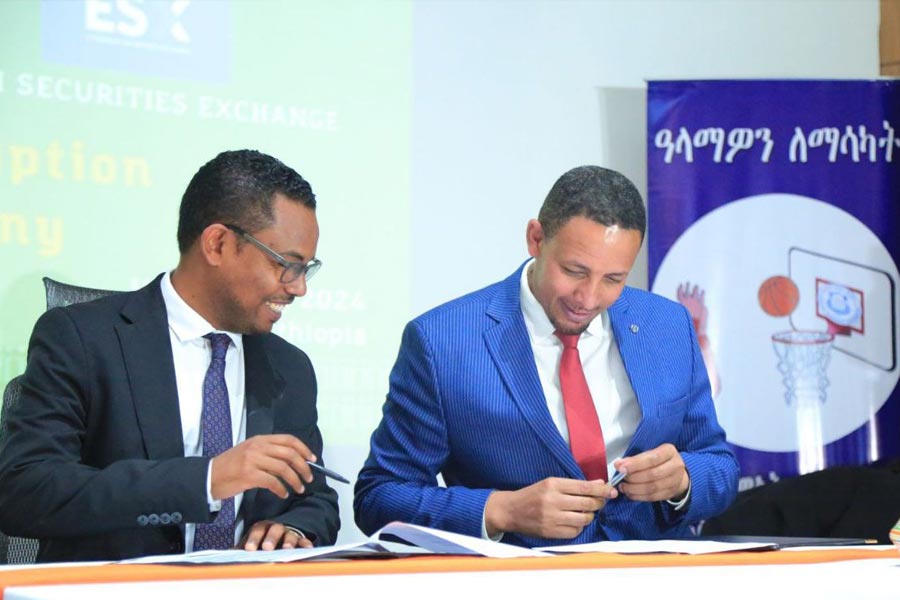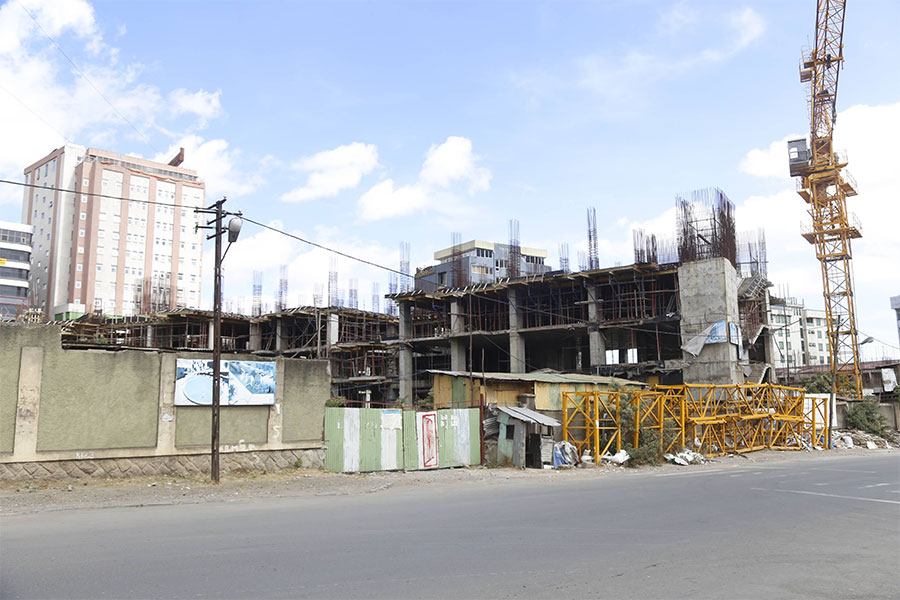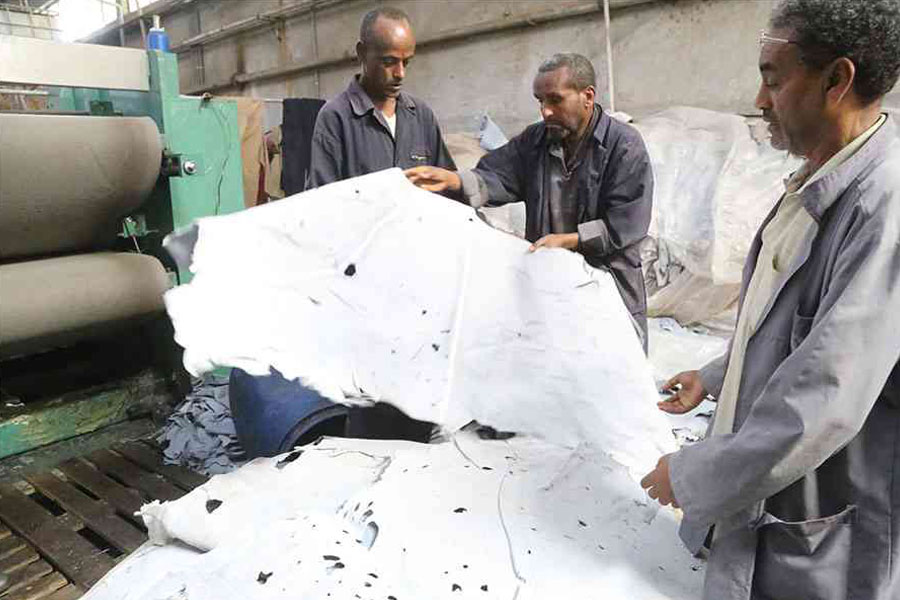
Radar | Feb 17,2024
Jul 27 , 2019
By Bereket Alemayehu
Ethiopia should continuously work to increase the flow of foreign investment, but it should also focus on the substance of the investment not just its quantity argues Bereket Alemayehu (alemayehu.bereket@yahoo.com), a lawyer currently working at Mehrteab Leul & Associates and as an adjunct lecturer at Addis Abeba University. The views expressed in this article are strictly his own personal opinions.
One of the notable features of this globalised world is the proliferation of foreign investment. Foreign investment, both direct and portfolio, has long found its way into the economies of developing and developed countries, albeit predominantly carried out among developed countries. The expansion of foreign investment can be justified for several reasons.
Among these explanations is the role international financial institutions (the World Bank and the International Monetary Fund) play in guiding, supporting and compelling developing countries to adopt and implement policies and regulations that promote foreign investment, including using such measures as loan conditionality.
Thus, states have been taking several investment-friendly policy measures, principally over the last forty years. Ethiopia is no exception.
Following its farewell to socialism in 1991, Ethiopia has been undertaking various economic reforms that aim at scaling up the role of the private sector in the economy. The Ethiopian government has been privatising the majority of the enterprises it wholly-owns. This reveals the government’s policy direction toward building a private sector-dominated economy. Other measures have also been taken for liberalising the economy and improving the investment climate, such as periodically revising the investment laws and providing numerous incentives to investors.
The chief objective of the current Ethiopian investment policy, as stated in the Investment Proclamation, is “to improve the living standards of the peoples of Ethiopia through the realisation of sustainable economic and social development.” The ultimate goal is intended to be attained through the achievement of different specific investment objectives that mainly include the creation of job opportunities, transfer of knowledge and technology to Ethiopians, generation of foreign currency, development of the productivity of the domestic market and bringing about balanced development among Ethiopian regions.
These efforts of the government have resulted in the surge in foreign investment and economic growth. According to UNCTAD’s 2019 Country fact sheet for Ethiopia, inward foreign investment has been increasing over the years, except for the year 2018 (perhaps due to the political instability experienced that year). As a result of these and other policy measures, Ethiopia has registered continuous economic growth, an achievement recognised by many, including international financial institutions.
It is incontrovertible that economic growth, which denotes an increase in GDP, can lead to economic development, which goes beyond mere GDP increases to focus on the economy’s positive effect on human beings, such as amelioration of standards of living and environmental protection. Yet it may not necessarily be so. As Tatyana P. Soubbotina rightly observed, “economic growth, by increasing a nation’s total wealth, also enhances its potential for reducing poverty and solving other social problems”, yet “history offers a number of examples where economic growth was not followed by similar progress in human development.”
It follows that foreign investment can help bring about economic growth, but, if it is not adequately regulated, may fail to help achieve economic development.
In Ethiopia, there are some confusion in media and government reports on the nexus between economic growth, economic development and foreign investment. It is common for many media reports on this matter to confuse economic growth with economic development. Concerning foreign investment, they also focus on the number of foreign investors that come to Ethiopia as the sole test of the advantages that foreign investment can beget to Ethiopia.
In other words, they concentrate on the quantity of foreign investment, not on its quality. A case in point is the typical emphasis of many Ethiopian media on the number of jobs created by a specific foreign investment.
While admittedly this approach of focusing merely on the quantity of foreign investment has some merits, since it is generally believed that a large number of foreign investments can bring about more benefits to the country than a few foreign investments, it is not entirely correct and reliable for measuring the actual impact of foreign investment. It is imperative to focus on both increasing the flow (quantity) of foreign investment into Ethiopia and its positive impact on the Ethiopian economy (quality).
The impact of foreign investment on labour and the environment are chosen to briefly demonstrate the indispensability of the need to focus on the quality of foreign investment in addition to its quantity.
To ensure that foreign investment brings about its full benefits to a country, thereby ultimately leading to sustainable economic development, there should be proper regulations and regulatory bodies that enforce them. Concerning investors’ obligation to comply with applicable regulations, the Investment Proclamation prescribes that “[a]ny investor shall have the obligation to observe the laws of the country in carrying out his investment activities.” It further states that “[i]n particular, he shall give due regard to environmental protection.” Accordingly, the Investment Proclamation declares that the promotion of investment should be balanced with other social interests in Ethiopia, such as the protection of the environment and labour welfare.
The regulations that apply to foreign investment envisioned under the Investment Proclamation, such as the environmental and labour laws, should be enforced by the respective sectoral government bodies. These sectoral regulatory bodies are in addition to the Ethiopian Investment Commission, the main investment promotion and regulatory body in Ethiopia, which has the power to undertake “post-investment support and monitoring services in collaboration with organs established for such purpose”, as stipulated in the Proclamation.
In reality, however, there are deviations from this declared intention to balance the need to attract and retain foreign investment with other public interests. Lately, many studies and media reports show that many Ethiopian workers are subjected to poor working conditions by many investors, including foreign investors.
For instance, the recent study by New York University’s Stern Center for Business and Human Rights, “Made in Ethiopia: Challenges in the Garment Industry’s New Frontier”, revealed the meagre amount of monthly wages, the inadequate training employees receive and the absence of trade unions that could have contributed to the improvement of working conditions at the Hawassa Industry Park.
Allowing investors to operate under poor labour conditions will lead to employees’ low standards of living and extreme poverty, thereby hindering the attainment of sustainable development as the ultimate goal of the Ethiopian investment regime. This is because proper working conditions are crucial for sustainable development.
The Ethiopian government has recently adopted a new Labour Proclamation. One of the most important changes introduced in the draft version is the fact that the Proclamation mandated the Council of Ministers issue a regulation on the Wage Board that will be responsible for periodically fixing and revising minimum wages. Even though this measure is commendable, it should be borne in mind that the rights and interests of workers are not limited to wages.
The labour laws should be strictly enforced to ensure that employees have decent working conditions. This requires regular inspections of the working conditions to ensure that employers (including foreign investors) comply with the laws. Equally essential is addressing the challenges employers face with the labour market, such as supplying them with a skilled workforce. These actions demand the coordination of the relevant regulatory bodies, notably the Ethiopian Investment Commission, the Ministry of Labour and Social Affairs as well as their regional and City Administration counterparts.
Likewise, regarding environmental protection, there are studies that show Ethiopian environmental laws are not strictly enforced on many foreign investments. This causes serious environmental damage to the detriment of the people living around the locations of the investments and the economy in general. As reported in different media, the case of some tanneries that pollute the environment around Modjo is illustrative of the lack of stringent implementation of the environmental laws. It is crucial to productively use our natural resources for our sustainable development, and that the environment should not be polluted, as economic growth attained through damaging the environment is unsustainable and detrimental.
Therefore, Ethiopia should continuously work for increasing the flow of foreign investment, but it should also focus on the substance of the investment. In other words, apart from solely using the quantity of foreign investment for measuring its impact on the Ethiopian economy, the quality of foreign investment in terms of its actual positive effect on the economy, principally in helping create decent working conditions, environmental protection and increasing people’s standards of living, must be appropriately appraised and taken into consideration.
For this purpose, the regulatory bodies in Ethiopia should build their expertise such as by training their staff to balance the need for promoting foreign investment with other public interests supported by the various regulations, such as environmental and workers’ protection.
Researchers, the media, non-governmental organisations and international organisations also must evaluate the quality of foreign investment. Only then can Ethiopia attain a truly sustainable economic development.
PUBLISHED ON
Jul 27,2019 [ VOL
20 , NO
1004]


Radar | Feb 17,2024

Radar | Nov 19,2022

Viewpoints | Aug 30,2025

Fortune News | Jan 07,2022

Fortune News | Jan 22,2022

Fortune News | Nov 10,2024

Commentaries | Apr 26,2025

Commentaries | May 23,2020

Fortune News | Feb 15,2020

Fortune News | May 14,2022

Photo Gallery | 178423 Views | May 06,2019

Photo Gallery | 168623 Views | Apr 26,2019

Photo Gallery | 159425 Views | Oct 06,2021

My Opinion | 137072 Views | Aug 14,2021
Commentaries | Oct 25,2025

Dec 22 , 2024 . By TIZITA SHEWAFERAW
Charged with transforming colossal state-owned enterprises into modern and competitiv...

Aug 18 , 2024 . By AKSAH ITALO
Although predictable Yonas Zerihun's job in the ride-hailing service is not immune to...

Jul 28 , 2024 . By TIZITA SHEWAFERAW
Unhabitual, perhaps too many, Samuel Gebreyohannes, 38, used to occasionally enjoy a couple of beers at breakfast. However, he recently swit...

Jul 13 , 2024 . By AKSAH ITALO
Investors who rely on tractors, trucks, and field vehicles for commuting, transporting commodities, and f...

Oct 25 , 2025
The regulatory machinery is on overdrive. In only two years, no fewer than 35 new pro...

Oct 18 , 2025
The political establishment, notably the ruling party and its top brass, has become p...

Oct 11 , 2025
Ladislas Farago, a roving Associated Press (AP) correspondent, arrived in Ethiopia in...

Oct 4 , 2025
Eyob Tekalegn (PhD) had been in the Governor's chair for only weeks when, on Septembe...

Oct 25 , 2025 . By YITBAREK GETACHEW
Officials of the Addis Abeba's Education Bureau have embarked on an ambitious experim...

Oct 26 , 2025 . By YITBAREK GETACHEW
The federal government is making a landmark shift in its investment incentive regime...

Oct 29 , 2025 . By NAHOM AYELE
The National Bank of Ethiopia (NBE) is preparing to issue a directive that will funda...

Oct 26 , 2025 . By SURAFEL MULUGETA
A community of booksellers shadowing the Ethiopian National Theatre has been jolted b...